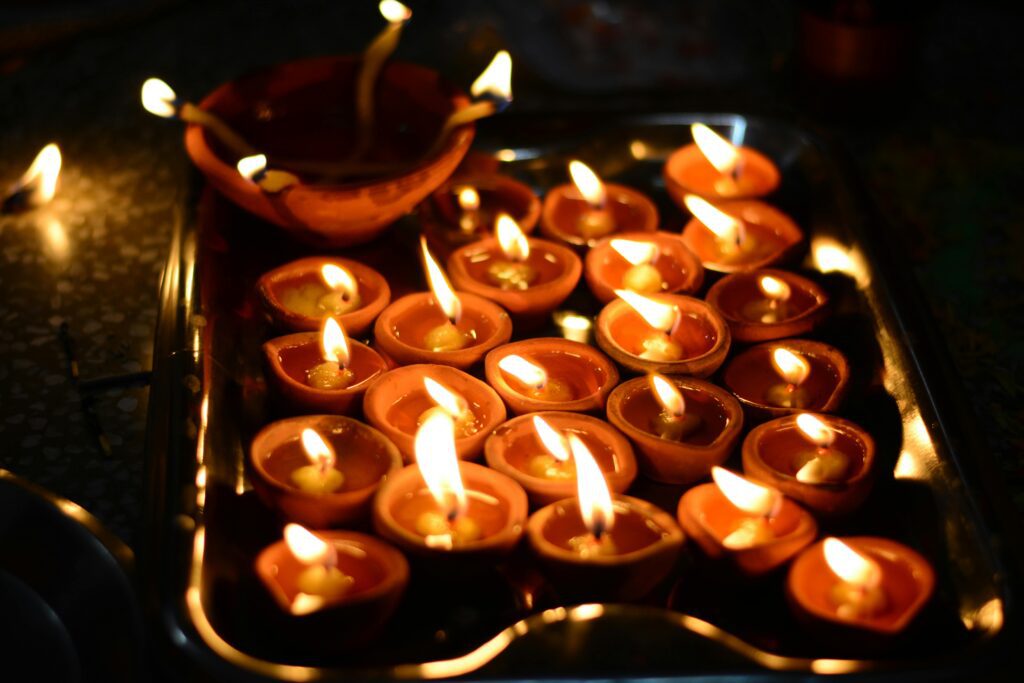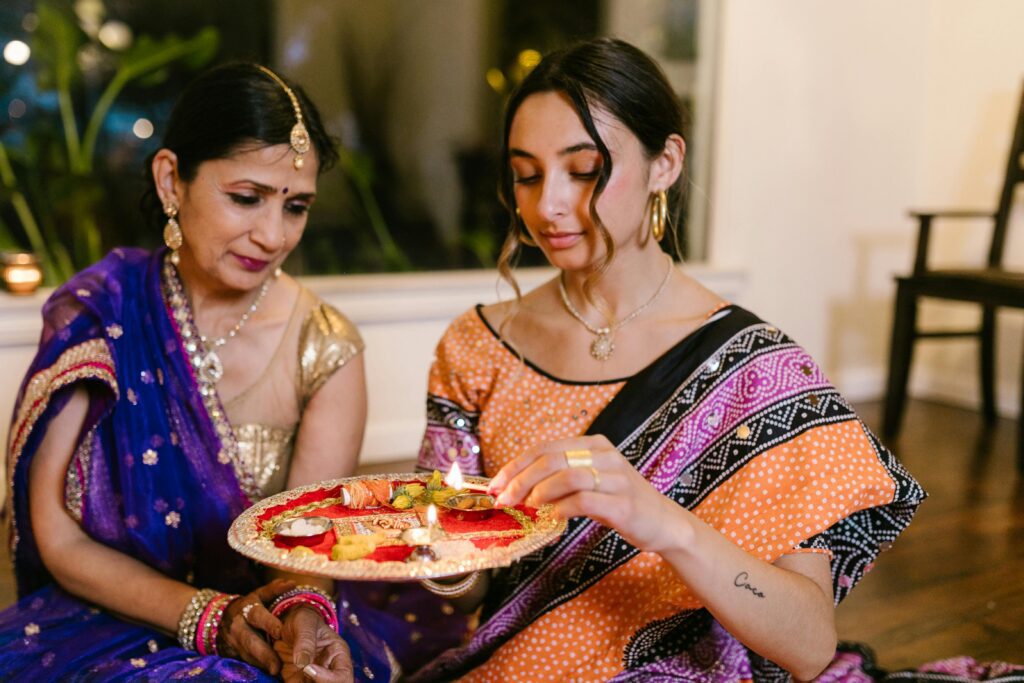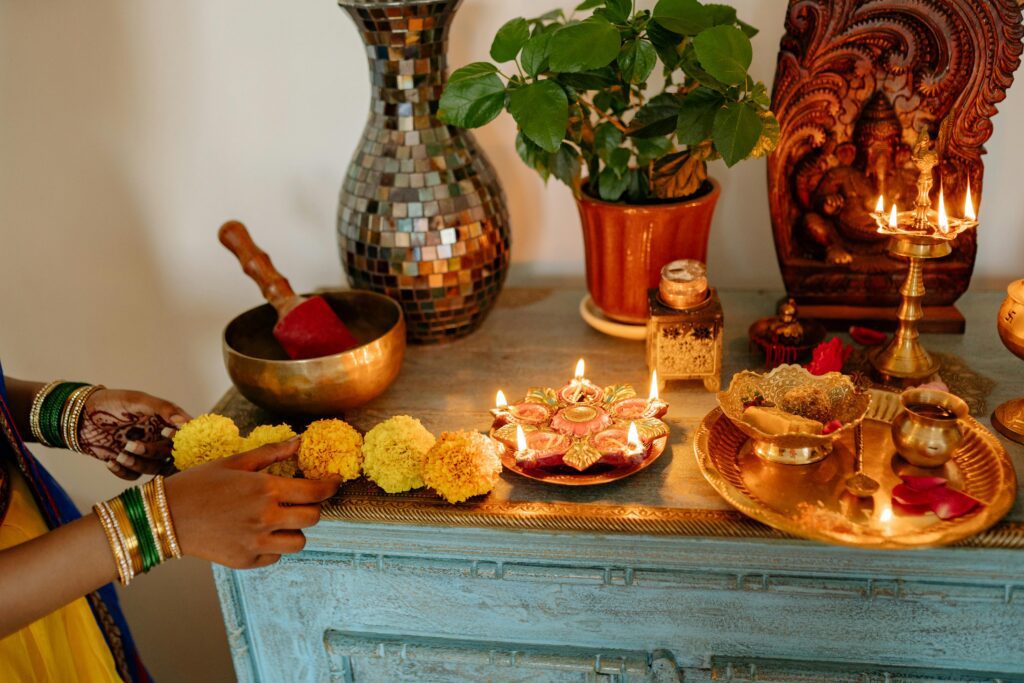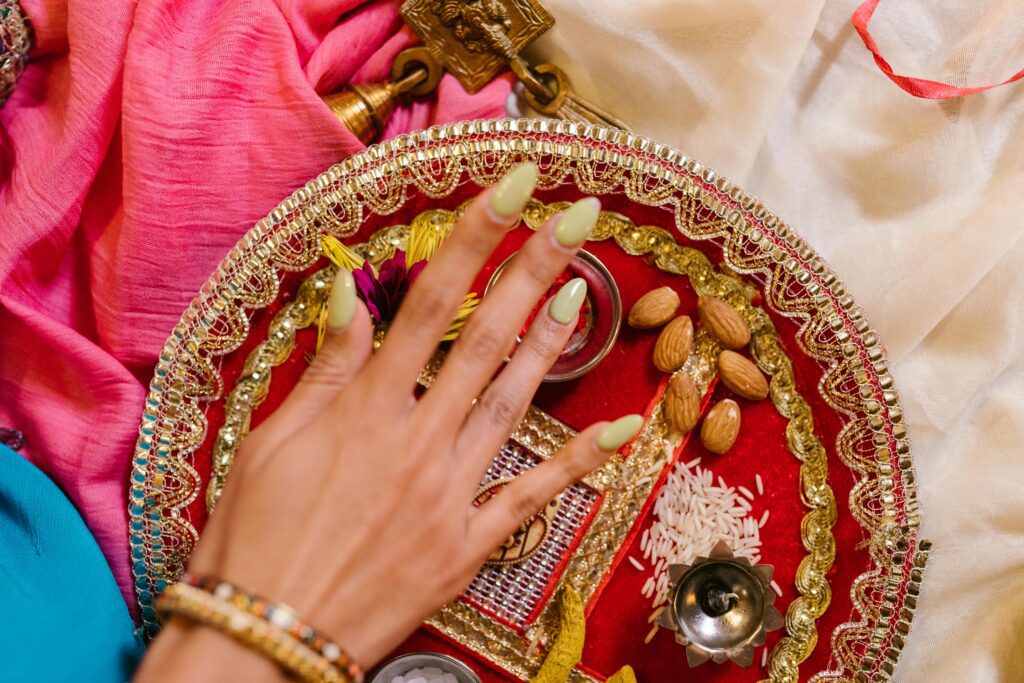
Table of Contents
Introduction: Festival of Light and Royal Splendor
Diwali, the magnificent Festival of Lights, is India’s most fervently celebrated and longed-for festival. It is revered for its spiritual significance, dazzling lights, and celebratory mood and represents the victory of light over darkness and good over evil.

Homes and streets throughout India are lit up by diyas, fireworks, and smiles during, but Diwali in Rajasthan is special with its unmatchable charm that echoes the splendor of imperial heritage and ageless traditions.
The desert state, renowned for its awe-inspiring palaces, colorful clothing, and genial hospitality, is a land of sheer magic during Diwali.
All over Rajasthan, from Jaipur to Jaisalmer, the lights shine with that same celestial fire that once illuminated the courts of the Rajput maharajas.
In 2025, the festival is set to be even more breathtaking, combining ancient Rajasthan traditions with contemporary aesthetics.
Individuals in Rajasthan celebrate Diwali not only as a festival but as a sentimental tradition that unites people, communities, and religion. The royal cities light up with lights, sweets, music, and piety, making a visual spectacle as well as a spiritual one.
The Historical Significance of Diwali in Rajasthan
The origins of Diwali are thousands of years old, and the history of Rajasthan’s association with it is redolent with legend and royal tradition.
In the past, Diwali was not only commemorating the homecoming of Lord Rama to Ayodhya but also signifying the beginning of a new trading year for businessmen and traders.
In Rajasthan, where commerce, craftsmanship, and royal patronage existed, Diwali was a religious as well as economic festival.
Rajasthani households light diyas to worship Goddess Lakshmi, the goddess of wealth, and Lord Ganesha, the remover of obstacles.
The rituals in Rajasthan over centuries developed—the each dynasty contributing its own traditions. The Rajput rulers used to celebrate by lighting up their forts, hosting lavish feasts, and offering prayers for prosperity and security.
In cities such as Jaipur, Bikaner, and Jodhpur, Diwali also represented the triumph of faith and bravery—values that Rajasthan’s warrior traditions uphold.
Traditional books write about how the royal courts of Mewar and Marwar organized special celebrations in which the king presented gifts to his soldiers and citizens.
Diwali in Rajasthan hence has both a spiritual and cultural heritage—a testimonial to the desert state’s rich-rooted faithfulness and royal refinement.
Rajasthan’s Royal Method of Celebrating Diwali
There is no other state in India that celebrates Diwali the way Rajasthan does. THE mix of religious ceremonies, social bonding, and royal pageantry.
The streets and bazaars are filled with the smell of sweets, vibrant colors, and the soft light of oil lamps.

In the capital city of Jaipur, the whole walled city comes alive in a dazzling spectacle visible from a distance. The government stages a “Light Competition,” wherein every market vies with the other to show the most impressive decorations.
The pink walls of Jaipur glow from the reflection of thousands of small fires, looking almost heavenly.
In Udaipur, the lakes reflect the glimmering light of palaces and temples, transforming the city into a dreamland. The Rajasthan traditions here include presenting diyas to the lakes—a ritualistic act of the unification of nature and faith.
Families rejoice by keeping their houses tidy, adorning doorsteps with rangoli, and distributing sweets among neighbors.
The spirit of unity and religion makes an emotional festivity—one where Rajasthan’s culture glows more vibrantly than any firecracker.
Rituals and Customs Observed During Diwali in Rajasthan
Dhanteras: Festival of Prosperity
The five-day Diwali festival starts with Dhanteras, the day that represents wealth and prosperity. Rajasthani people purchase gold, silver, and utensils, as they feel that these expenditures ensure prosperity.
At bazaars throughout Jaipur and Jodhpur, you will find individuals purchasing brass lanterns and silver coins with Lakshmi and Ganesha photographs engraved on them.
Chhoti Diwali: Purification and Preparation
On this day, homes are cleansed with ritual cleansing. Women adorn their courtyards with rangolis of many colors, whereas men set up lamps and lanterns. This cleansing ritual is one of the major Rajasthan rituals, as it represents cleansing away the negativity prior to the divine power of Diwali.
Badi Diwali: The Main Festival
This is the day that is dedicated to worshipping Goddess Lakshmi and Lord Ganesha. Evening puja is performed in homes with diyas lit and mantras chanted by family members.
Temples throughout Rajasthan are filled with the spirit of Diwali—bells peal, incense permeates, and the voice of bhajans resounds through the night. In royal homes, lighting thousands of diyas is still a tradition followed.
Govardhan Puja and Bhai Dooj: Bonds of Devotion
The following two days celebrate devotion and relationships. Govardhan Puja is ushered in with offerings of food, thanking nature and Lord Krishna for blessings.

Bhai Dooj celebrates the love between brothers and sisters. These show the deep family bonds that are the base of Rajasthani society.
Royal Celebrations: How Palaces and Forts Shine on Diwali Night
On Diwali, Rajasthan’s forts and palaces are turned into exquisite sights. The royal houses perpetuate ancient traditions, converting these structures of wonder into shining manifestations of cultural pride.
In Jaipur, the City Palace is aglow with golden lights, and the royal family conducts a century-old Diwali puja. In Udaipur, the Lake Palace and City Palace mirror beautifully in the serene waters of Lake Pichola, making a magical mirror image.
On the occasion of Shri Ganesh Chaturthi at Mehrangarh Fort in Jodhpur, there is traditional music, dance, and feasting. Guests are received with garlands and sweets, as it was in the days of the Rajputs. Lamps adorn the whole of the fort and give the place an aura of divine brilliance.
Even the smaller cities such as Bikaner and Bundi preserve their—residents illuminate diyas on fort walls, pray with sweets to gods, and rejoice with folk performances. Each light is a testament to devotion, royalty, and pride.
Traditional Delicacies and Festive Feasts
Rajasthan is complete without the smell of traditional sweets and delicacies. The culinary traditions of the state are an indispensable part of the celebration, and food becomes not only a source of sustenance but an act of love.
One of the most sought-after foods during Diwali is Ghewar, a honeycomb-like sweet prepared using flour and ghee. Mawa Kachori, Balushahi, and Besan Chakki are other favorites that families prepare and exchange.
These sweets are presented before guests as well as deities in Rajasthan rituals. While performing the puja, trays of sweets, dry fruits, and coins are offered before Goddess Lakshmi. The distribution of these sweets is a sign of thanksgiving and generosity, two values rooted in Rajasthani culture.
Diwali is celebrated with feasts where neighbors bring dishes together, which represent togetherness. Combining the food and emotions, Rajasthan is a lifetime experience for the senses.
Spiritual Essence: The Deeper Meaning Behind the Lights
Though the external display of Diwali is compelling for all, there exists a deeper spiritual significance. In Rajasthan, this spiritual significance is sustained through faith, meditation, and shared beliefs.
Lighting diyas is not just for show—it’s a symbol of light overcoming darkness, of intelligence defeating ignorance. The residents of Rajasthan see the flame as a sacred envoy, taking prayers to God.
The bring attention to reverence of deities such as Goddess Lakshmi, Lord Ganesha, and Lord Rama. There are special ceremonies performed in temples like Govind Dev Ji in Jaipur and Krishna Temple at Nathdwara. Devotees recite hymns, perform flower offerings, and reflect on thankfulness.
Rajasthan’s spirituality is intricately interwoven with its culture. For most, celebrating Diwali is about kindling the light within, lighting up the soul, and reconnecting with virtues of compassion and humility.
Eco-Friendly and Modern Diwali in Rajasthan 2025
With the changing times, traditions change too. Today’s Rajasthan in 2025 is seeing an increasing shift towards green celebrations. Citizens are becoming more aware of minimizing noise and air pollution and are using eco-lamps, natural rangolis, and organic colors instead of firecrackers.
Jaipur and Udaipur now encourage sustainable Rajasthan rituals where diyas of clay are preferred over plastic lighting. Handmade decorations from recycled items are created by local craftsmen, merging creativity with concern for the environment.
Young Rajasthani people today celebrate with zest but responsibly. Most families plant trees, give food to the poor, or install solar-powered lights to respect the earth.
The young generation is making Diwali a festival of delight while sustaining the desert state’s natural heritage.
Best Cities to Celebrate Diwali in Rajasthan
Jaipur – The Pink City of Lights
Jaipur, the state capital of Rajasthan, is renowned for its rich royal past and colorful bazaars. Jaipur turns into a dazzling celebration for which it has acquired its nickname of being the “City of Lights.”
Decorations and Lighting: The whole city lights up since palaces, havelis, and markets are illuminated with numerous diyas and fairy lights. The pink walls of Jaipur bounce off the golden light, and the city becomes a magical place.
Shopping and Markets: Johari Bazaar, Bapu Bazaar, and MI Road organize Diwali fairs in which locals and travelers
Diwali by purchasing traditional attire, ornaments, and decorative pieces. The experience of shopping is given a boost by street shows and folk songs.
Rajasthan Traditions: Families celebrate Lakshmi-Ganesha Puja at home by filling courtyards with rangoli and lighting diyas.
Temples like Govind Dev Ji are filled with devotees performing evening aarti and singing hymns.
Cultural Events: The city features traditional music and dance performances. Ghoomar dances, puppet shows, and folk singing are added to the late-night celebrations.
Jaipur seamlessly merges the royal with the modern, providing both spiritual and celebratory experiences during Diwali.
Udaipur – The City of Lakes
Udaipur is referred to as the “Venice of the East,” and its is a stunning combination of nature, culture, and spirituality.
Palaces and Lake Reflections: Palaces such as the City Palace and Lake Palace get adorned with lights, and their reflections in Lake Pichola make the visual treat double. Lighting diyas on the lakeside is a Rajasthan tradition that stands for peace and prosperity.
Spiritual Experience: Floating lamps in the lakes are offered by devotees and prayed for blessings.
The spiritual atmosphere becomes more elevated with temple bells ringing and hymns resonating in the city.
Cultural Celebrations: Folk performances, traditional music, and boat rides on the illuminated lakes provide an immersive experience.
Families gather on terraces to admire the glowing palaces while performing puja at home.
Unique Traditions: Unlike Jaipur, Udaipur emphasizes the harmony between nature and culture, making its Diwali serene yet grand.
Visitors often describe Udaipur’s Diwali as magical, where spirituality and festivity coexist perfectly.
Jodhpur – The Blue City’s Festive Glow
Jodhpur, also popularly referred to as the Blue City, puts a personal touch on Diwali festivities through its fortifications and blue-painted residences.
Mehrangarh Fort and Umaid Bhawan Palace: These icons are lit up magnificently. Cultural events in the form of traditional dances and music performances are staged at the fort.
Both tourists and locals celebrate together and experience the majesty of royal architecture.
Street Celebrations: Markets in the old city are vibrant, teeming with lights, sweets, and shades of color. Street vendors offer hand-crafted products and antique lamps, preserving rituals.
Cultural Significance: Aids like folk songs, dances, and narration sessions add weight to the festival. Families gather to worship deities and relish festive food.
Local Flavors: Festive sweets such as Ghewar and Balushahi are offered to neighbors, reinforcing community cohesion.
Jodhpur merges culture, heritage, and festive fervor, a pilgrimage that Diwali lovers must take.
Pushkar – The Spiritual Heart of Diwali
Pushkar is famous for its spiritual appeal, with pilgrims and travelers flocking to Pushkar during Diwali.
Temple Festivals: Pushkar Lake and Brahma Temple are at the heart of Rajasthan rituals. Pilgrims light diyas on the ghats, praying for health, wealth, and happiness.
Cultural Harmony: Devotional music and storytelling sessions that feature traditional Diwali legends are hosted in the town.
Family and Community: Diwali is celebrated by locals through gathering at the ghats, exchanging sweets, and collectively performing pujas. The focus is on spirituality and not extravagance.
Unique Experiences: One can experience the convergence of desert settings and spiritual passion, lamps glinting off the holy waters of Pushkar Lake.
Pushkar provides a spiritual Diwali experience, bringing out the spiritual essence of India.
Bikaner – The Desert’s Cultural Gem
Bikaner is renowned for its forts, havelis, and desert magic, and Diwali lights it up with regal grandeur.
Fort and Palace Lighting: Junagarh Fort and local havelis are illuminated with lamps, and it’s a stunning visual display. Locals mark Diwali with rows of diyas lighting up the streets.
Fairs and Folk Performances: Bikaner celebrates Diwali fairs with folk music, dance performances, and camel rides. These celebrations demonstrate the cultural richness of the city.
Rajasthan Rituals: Goddess Lakshmi and Lord Ganesha pujas are conducted by families with sweets and offerings to cement familial ties.
Culinary Delights: Traditional sweets like Mawa Kachori, Balushahi, and Ghewar abound, adding flavor to festivities.
Bikaner blends old rituals, desert romance, and regal sophistication, providing an unforgettable Diwali experience.
Optional: Other Notable Cities
Jaisalmer: The Golden City, Diwali in Jaisalmer is a celebration of desert safaris, fort lighting, and folk songs.
Ajmer: Pilgrims arrive at the Dargah Sharif along with Diwali celebrations, showcasing the blend of cultures.
Mount Abu: The hill station enjoys a peaceful Diwali with pleasant weather, lit-up temples, and tranquil lakeside festivities.
Every city in Rajasthan celebrates Diwali in its own special manner, and collectively, they give rise to a rich, vibrant, and soul-stirring festival that draws tourists from all over the globe.
Conclusion: The Glow of Culture and Togetherness
Diwali in Rajasthan is not a festival; it is a celebration of life, heritage, and faith. In the deserts, forts, palaces, and bazaars, the light appears in infinite lamps, smiling faces, and pious rituals.
Each lit diya, each drawn rangoli, and each morsel of sweet shared is a part of a distinctive fabric of Rajasthan’s culture.
The Rajasthan traditions around Diwali—ranging from the Lakshmi-Ganesha puja to Govardhan Puja, and Bhai Dooj—are rich in history and symbolism.
They bind generations together, conserve customs, and transmit values of respect, dedication, and companionship.
Families mark Diwali not just to celebrate deities but to reinforce communal ties and generate a feeling of belongingness.
The majesty of royal cities such as Jaipur, Udaipur, and Jodhpur provides another dimension of grandeur to the festival. Forts and palaces lit with thousands of diyas bring to mind Rajasthan’s rich royal heritage.
Meanwhile, towns like Pushkar and Bikaner demonstrate how spirituality and local culture get interwoven together, reflecting the heart and soul of the people of Rajasthan.
Today’s trends in Rajasthan are also defining , as green celebrations become more prominent.
Families now greet with environmentally-friendly ornaments, earthen lamps, and fewer uses of firecrackers, so the festival of light will continue to glow for centuries to come while honoring the environment.
Finally, Rajasthan is the ideal blend of tradition and modernity, royalty and people, light and spirituality. It is a festival that fills houses with joy, lights up cities, and binds people together as human beings.
The Rajasthan rituals and the splash of colors capture the true spirit of Diwali—the triumph of light over darkness, wisdom over ignorance, and hope over despair.
In each city, from Jaipur’s shimmering markets to Udaipur’s peaceful lakes, from Jodhpur’s great forts to Pushkar’s sacred ghats, the message is clear:
Diwali is a celebration of life, respect for tradition, and a celebration of the glowing light within. To see is not merely to observe a festival—it is to be part of a living history of culture, faith, and eternal joy.
Rajasthan’s Diwali, thus, is not just a visual treat but also a spiritual sojourn. The lighting, the rituals, and the celebrations combine to provide an experience that cannot be forgotten and leaves an indelible mark upon the heart and soul.
Each year, as celebrated by families, the state’s palaces, cities, and deserts shine with hope, devotion, and joy, once again reestablishing Rajasthan as one of India’s most enchanted places to be during the festival of lights.
